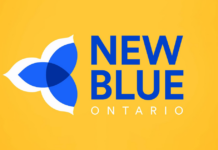A motion before the Toronto District School Board (TDSB) calling on free feminine hygiene products to be provided in all 72 Ontario public schools makes no reference to women and only mentions “people who menstruate.”
The motion titled “Access to Free Menstrual Products for Students in Ontario Schools” will be presented before the TDSB Program and School Services Committee on Wednesday.
The motion argues that “lack of access due to economic factors — often referred to as ‘period poverty’ — impacts people who menstruate around the world and can be especially damaging at puberty, when school interactions are crucial to a student’s development.”
The memo then goes onto say that “one-third of people who menstruate under the age of 25 in Canada struggle to afford menstrual products, and 70% of people who menstruate say they have missed work or school due to their period.”
The motion ends with a call for the committee to write to Ontario’s minister of education requesting the provincial government to provide funding for the initiative.
Since 2019, TDSB schools have already been providing free menstrual products to students upon request.
“There are girls and women around the world, even here in Canada, who cannot afford menstrual products. We don’t want a single one of our students having to worry about that and that is why this is such an important step that the Board is taking,” said TDSB Chair Robin Pilkey on August 30, 2019.
However, according to the motion, that’s not enough. It goes on to argue that requiring students to request such items violates their privacy and therefore the product must be provided without such obstacles.
As exclusively reported on by True North, a similar motion was presented before the Ottawa Carleton District School Board (OCDSB) earlier this month.
A January 28, 2021 report by the OCDSB’s Advisory Committee on Equity calls on the OCDSB to provide free menstrual products with students and cites “gender-neutral language and packaging” as being of paramount importance in the rollout.
“Consideration for the needs of all student demographics in the implementation and maintenance of this initiative is paramount, for example, private and unsupervised access, usage of gender-neutral language and packaging,” reads the report.






















